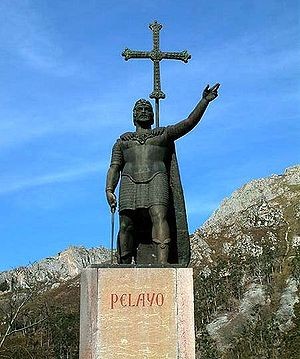 1. Importancia histórica de un gran tema 1. Importancia histórica de un gran tema
Llama la atención –introduzcamos- que, en este año de 2011, se guarde silencio sobre el 1.300 aniversario de la invasión de Hispania por los musulmanes. No se trata de una conmemoración, sino de un recuerdo que por varios motivos no puede dejarse de hacer.
No preguntemos el por qué de este silencio. Las Armas del Gobierno español están hoy combatiendo en la Libia de Gadafi, con sus bien buscados aliados. No sabemos si el motivo del silencio es no querer excitar a los musulmanes recordándoles su invasión de Hispania, convertida hoy en un lugar de reciente e intensa emigración, mientras España combate en Libia en apoyo a los rebeldes al Gobierno constituido. No creemos que recordar aquella invasión de 711 implique, sin más, poner hoy guardia a unos u otros, pues ello mostraría una escasa madurez personal y social por una u otra parte. Ahora bien, creo que “la cosa” no va por ahí. Es mejor pensar que el silencio sobre el significado del año 711 es porque Guadalete supone hablar de Covadonga (722).
Este tema, es uno de los principales de la historia de la Cristiandad occidental, Según el historiador José Orlandis:
“(…) el dramático y repentino final del Reino visigodo español fue una catástrofe histórica tan absoluta y de tal magnitud que resulta comprensible que, a lo largo de doce siglos, las generaciones sucesivas no hayan cesado de plantearse interrogantes y proponer respuestas que pueden dar la clave de un acontecimiento que todavía hoy sigue resultando sorprendente”.
Este acontecimiento conlleva muchas sorpresas. Sorpresas sobre quienes trajeron a los norteafricanos, sobre la enorme ingenuidad política de aquellos agentes, sobre los aliados internos de los musulmanes (un vasto clan nobiliario, algunos clérigos politizados, y la minoría hebrea), sobre lo que se pudo hacer por parte de los hispano visigodos y no se hizo como fue una sana reacción, y sobre la reacción final de una minoría cristiana que, si bien estaba interinamente vencida, no se dejaba derrotar. Tras un grano como semilla –la Fe religiosa- salieron cinco Reinos hispánicos y, al fin, la corona de las Españas, o de España, según se prefiera.
Sorprende la rapidez y contundencia como los musulmanes subordinados al califato Omeya de Damasco se impusieron a la monarquía visigoda, que daba una imagen de poder. Sorprende cómo los invasores provocaron el hundimiento, por arte de ensalmo, de una monarquía hispano goda, que parecía consolidada después de tres siglos. Sorprende el final de toda la estructura política, social, cultural y económica de un reino como el visigodo, que junto con el reino Franco y quizás el reino Ostrogodo, fue uno de los pocos reinos importantes que configuraron los germanos tras invadir el Imperio romano.
Este desplome fue sorprendente e inesperado tanto para los cristianos como para los musulmanes, y, lógicamente, también para los traidores al último rey hispanogodo, Rodrigo. Pues bien, esta larga y ardua página preparatoria que se abrirá de ocho siglos de historia de España, la continuarán la labor de España en la Cristiandad europea durante los 200 años posteriores, y la recreación de toda América, inmenso continente de inconmensurable espacios y grandiosa belleza, con una población sinceramente católica e hispánica al menos hasta hoy.
Sorprende que un reducido o discreto Ejército musulmán, tuviese tan buenos resultados, y ocasionase el hundimiento de su enemigo, el reino visigodo. De por sí, la invasión sólo podía producir algún quebranto, ya por el número de los combatientes, ya porque su retaguardia estaba muy alejada de la península, ya porque el nexo de unión de ambos lados del Estrecho era tan frágil como la inexperiencia naval de los musulmanes.
En conclusión: las razones del hundimiento de la monarquía visigoda hay que buscarlas sobre todo en el lado hispano. Por eso, hay que explicar previamente la crisis de la monarquía goda.
Ahora bien, a pesar de la crisis interna y global de Hispania, lo decisivo para el hundimiento del reino de Toledo fue la invasión del Islam. Lejos de la hipótesis estructural, afirmará Orlandis:
“Esta crisis intestina, que le restó capacidad de resistencia (al reino visigodo), facilitó el hundimiento de la Monarquía visigoda ante el empuje musulmán. Pero hay que reconocer que la invasión árabe fue el factor capital en la desaparición del Reino de Toledo y que el curso de los acontecimientos hubiera sido, con toda probabilidad, completamente distinto, de no haberse producido el asalto procedente del exterior”.
Veremos que la derrota visigoda frente al Islam se debió particularmente a los aspectos siguientes: a la división entre la nobleza goda, a la decadencia moral del rey Witiza, la traición del clan de los witizanos una vez fallecido el rey Witiza, y a las agitadas actividades de la minoría judía, que tanto había sufrido durante algunos reinados godos, aunque hubiese prosperado mucho en el último gobierno del rey Witiza. Es decir, el reino visigodo cayó por la sorpresa de los hispanogodos y no darse cuenta de lo que estaba ocurriendo, por la división política, por el juego del invasor de presentarse como aliado de una facción nobiliaria, por la falta de jefes naturales, por la incapacidad para unirse frente a un enemigo común, por la falta de una reacción a tiempo confiando en que “no pasaba nada” esencialmente diferente a lo vivido hasta entonces, por la crisis que atravesaban no pocos eclesiásticos, la inmoralidad de costumbres en las élites, y las complicidades interiores con los invasores.
Sabemos que el año 711 fue el comienzo de una larga invasión, pues durante 800 años se sucedieron las invasiones islámicas de la península Ibérica desde el Norte de África. Si bien comenzaron con el conde don Julián, Tariq y Musa, después llegarán aportes sirios y árabes y, sobre todo, numerosas oleadas musulmanas, norteafricanas y guerreras hasta el fanatismo, de almorávides (siglo XII), almohades (siglo XIII, con las Navas de Tolosa en 1212) y los benimerines (siglo XIV). Ahí está también la amenaza turca sobre la Granada de Boabdil, amenaza continuada en los siglos XVI y comienzos del XVII. Incluso Felipe V de Borbón, llevó sus Armas al Norte de África a comienzos del s. XVIII.
Conocíamos las responsabilidades del conde don Julián, pero no creíamos que fuesen tantas. No obstante, como no hay mal que por bien no venga, al fin se formó España, dominadora del Orbe, cuna de San Ignacio, espada de Roma, cuya constitución y grandeza fue la unidad católica, pues, como decía Menéndez y Pelayo sobre la unidad de España, España no tiene otra unidad.
2. Marco Histórico y desgarro interior de Hispania como causa de la invasión musulmana
2.1. Desgarro Interior
En la monarquía hispano goda se había roto el espíritu público, esto es, el concepto de pueblo y de monarquía para el bien común. ¿Por qué? Citemos varios motivos:
1º Las clientelas nobiliarias originaron fuertes clanes político-familiares, y a menudo estos se enfrentaron entre sí por el poder del trono. La aristocracia visigoda, antaño guerrera, originó enfrentamientos en su seno. Incluso politizó a los obispos de Sevilla y Toledo, que eran del clan witizano. Los visigodos habían perdido sus virtudes castrenses. Debido a esta división, las resistencias que los hispanogodos presentaron a los islamitas fueron aisladas; de ofrecer un frente común, los musulmanes no podían haber aguantado debido a su escaso número y al ir desplazándose hacia el norte lejos de sus bases de abastecimiento.
2º La desmoralización popular se refleja en la excesiva carga fiscal y la desmovilización militar del pueblo. Aumentó mucho el número de siervos fugitivos, así como el de suicidios, que llegó a preocupar a los obispos hispanogodos, lo que muestra el desequilibrio psíquico de muchos individuos. Por su parte, el holandés Dozy ha pintado un oscuro retrato de la sociedad hispano visigoda y de la Iglesia en Hispania, debido quizás a su fanatismo anticlerical. Más bien habrá que señalar que dicha Iglesia ofreció resistencia al nuevo estado de cosas y que estimulará los núcleos de resistencia en las montañas del norte de Hispania.
3º La crisis económica se expresó en el envilecimiento de la moneda, y el enrarecimiento del comercio exterior. Ahora bien -y fruto de un inmoderado afán de acumular síntomas de decadencia-, no se debe incidir demasiado en ella, porque también existieron otras crisis –hambres y pestes- durante las dos centurias anteriores, por ejemplo en los reinados de Ervigio y Egica (Orlandis). Si hubo hambres en los años 707 y 709, en 710 hubo una estupenda cosecha.
4º Fue continuo el conflicto con los judíos debido a las prevaricaciones de los falsos conversos. Ello hizo que los Concilios XII, XIII y XVI de Toledo decretasen unos cánones restrictivos para su libertad. A ello los hebreos sumaron diversas conspiraciones, sobre todo la del año 694, fraguada entre los hebreos hispanos y los de Ultramar, provocando así la singular dureza en los cánones del Concilio XVII de Toledo. En este punto, observo una dicotomía entre la prudencia de Orlandis y lo que recogen otros autores. Para Orlandis: “Es imposible comprobar lo que pudiera haber de verdad en estas noticias, aunque la conducta observada por los judíos españoles cuando se produjo la invasión islámica obliga –dice- a no descartarlas a priori como una pura invención”. Por otra parte, ¿no es difícil que todo un concilio inventase semejante conspiración? Menéndez y Pelayo da por cierta dicha conspiración “contra la seguridad del Estado”. También la afirma el holandés Dozy, aportando interesantes detalles, confirmados por la Enciclopedia Judaica Castellana. Dozy señala que:
“(…) hacia 694 (…) proyectaron una sublevación general, de acuerdo con sus correligionarios de allende del Estrecho, donde varias tribus beréberes profesaban el Judaísmo y donde los judíos desterrados de España habían encontrado refugio. La rebelión probablemente debía estallar en varios lugares a la vez, en el momento en que los judíos de África hubiesen desembarcado en las costas de España (…)”.
También será muy importante la aportación de los hebreos en la preparación y desarrollo de la invasión islamita, desde alentar a los islamitas a realizar la invasión, y darles medios, hasta ayudarles a mantener con guarnición las ciudades que los islamitas y witizanos conquistaban
5º La crisis eclesiástica afectó al clero y sobre todo al episcopado, lo que choca con la labor de los 17 concilios toledanos, y las grandes figuras de la Iglesia hispanogoda, por ejemplo san Julián de Toledo que convocó el XV Concilio y, san Félix, arzobispo de Toledo, que convocó el XVII Concilio en esta ciudad. Así pues, entre los obispos hubo una progresiva germanización y una cada vez mayor presencia aristocrática. Que hubiese más talante señorial que espíritu eclesiástico, lo muestran don Oppas, arzobispo de Sevilla, y Sisberto, obispo de Toledo.
6º Es muy posible que los witizanos creyesen al comienzo que los musulmanes iban únicamente a apoyarles para que accediesen al trono, y que luego tendrían que darles la recompensa. Esta bien podría ser la plaza de Ceuta, tesoros, o bien una parte del sur de España como Atanagildo hizo y entregó a los bizantinos por el apoyo prestado.
7º Es muy probable que los hispanogodos no advirtiesen el peligro que suponía la presencia y correría islamita. Quizás creyesen que los witizanos debían seguir apoyándose en los musulmanes al no haber vencido totalmente a los partidarios de Rodrigo, o bien porque este último estaba vivo.
A ello se suma el empuje de la guerra santa de los islamitas dispuesta en el Corán y seguida literalmente durante los primeros siglos. En realidad, el Corán no admite interpretaciones. Esta nueva y joven religión ofrecía una mística de combate superior al espíritu desprevenido de los hispanos, y sobre todo al hecho de que estos no advertían el peligro que suponían los invasores.
2.2. Marco Histórico
El marco fue el siguiente. El rey Egica (687-702), que fue un monarca enérgico, quiso garantizar la sucesión al trono asociando a él a su hijo Witiza, que por vía de aprendizaje y cooptación fue enviado a gobernar el antiguo reino de los suevos, allá en Galicia. Witiza fue ungido rey de Gallecia en el año 700. Ambos, Egica y Witiza -padre e hijo- hicieron frente a varias sublevaciones nobiliarias, que reprimieron con dureza, apartando a los culpables de cargos del oficio palatino y confiscándoles sus bienes. Seguramente fue Egica quien de ambos más decisión mostró en la represión de los rebeldes.
Muerto Egica, su hijo Witiza fue el único rey (702-710). Witiza inició una política de atracción de los nobles desobedientes pero sin resultado alguno. Si inicialmente dio pruebas de ser un buen rey, al poco tiempo mostró una gran debilidad política, corrupción moral, anuló la legislación antijudía para a continuación favorecer mucho a los hebreos. A pesar de ello, Witiza sufrió la sublevación de un tal Pelayo, hijo del Fafila que había muerto en sus manos por ser responsable de una anterior sublevación. Pues bien, parece que este Pelayo fue el caudillo e Covadonga, el primer caudillo o príncipe –no rey- de Asturias.
Según Albanés, el despotismo de Witiza hizo que el célebre Eudon (algún autor dice que seguramente hebreo) provocase una conjura, de modo que la nueva junta o senado creado pensó como rey en Rodrigo, nieto de Receswinto. En breve, en el año 710 murió Witiza, joven, con menos de 30 años. Dejó tres hijos: Akhila, Olmundo y Ardabastro. ¿Quién ocupará un trono ambicionado por los linajes o clanes? Según unos, la mayoría de los nobles legalizó el reinado de Rodrigo, y según otros –los que omiten la conjura de Eudon- la aristocracia rechazó los intentos de poner a Akhila, “y procedió a la designación de un sucesor a la corona, sistema raramente aplicado en la práctica, pero (…) legal” (Orlandis). A efectos prácticos era lo mismo. Ocupó el trono un nuevo rey, Rodrigo. Aunque este era, sin duda, el rey legítimo, sufrirá la sublevación de los seguidores de los hijos de Witiza, que se apoyarán en los islamitas (y hebreos, que habían sufrido la legislación y política hispano goda) para ser después conquistados por los guerreros del Islam. El clan witizano dirigido por los hermanos del difunto Witiza –don Oppas obispo de Sevilla y Sisberto arzobispo de Toledo- “no se resignará a su derrota y planeó la conquista del trono con ayuda extranjera” (Orlandis). No obstante, la ayuda exterior no era algo nuevo, pues Atanagildo había logrado ser rey con auxilio de Bizancio en el año 555, y Sisenando con apoyo del reino franco en el 631.
Al otro lado del estrecho, aunque todavía no alzado el poder musulmán, los witizanos podían apoyarse en los muslines. Por su parte, independientemente o de forma coordinada, también podían actuar los hebreos favorecidos por Witiza entre los no pocos hebreos expulsados de Hispania. Es ahora cuando entra en escena el conde don Julián, que introdujo a los musulmanes en España.
3. Las cuatro primeras expediciones
3.1. El misterioso Conde D. Julián
El llamado conde don Julián era -al parecer- de origen bizantino, aunque pudiera ser godo o tener otro origen. Recordemos que Bizancio estuvo presente en el Norte de África, desde Cartago a Ceuta, desde el s. VI. Don Julián –la leyenda le llamará “conde don Julián”- era tributario o “cliente” de Witiza. Existen relatos legendarios que nos refieren los ultrajes que recibió del rey don Rodrigo, de los que prescindimos además de no ser creíbles. Mandaba el presidio de Ceuta, que quizás fuese el refugio más perfecto para los witizanos ansiosos de la revancha contra Rodrigo. Fue el intermediario del grupo witizano. Pues bien, ¿de qué fue responsable ante la Historia el conde don Julián, si prescindimos de la fantástica reivindicación de don Julián por el novelista Juan Goytisolo (México, 1966)?
El conde entró en contacto con el gobernador árabe de la zona occidental de África del Norte, llamado Musa-ben-Nusayr, que buscaba consolidar el dominio musulmán en la zona de Magreb. Recordemos el escaso éxito que tuvo la religión islámica entre los beréberes. Musa residía en Trípoli, y tenía su segundo, un tal Tarik, gobernando el Magreb (Marruecos) con sede en Tánger.
Las primeras proposiciones de don Julián a Tarik inspiraron a los musulmanes serios recelos. A ello se añadía la gran dificultad de los musulmanes para cruzar el estrecho, debido al hecho de desconocer del arte de la navegación, a carecer de barcos, y a convertirse el Estrecho en un mar bravío por la confluencia de las aguas atlánticas y mediterráneas.
Don Julián quiso convencer a los musulmanes ofreciéndoles hechos y no sólo palabras. Así, hizo una expedición de sondeo dirigida contra la península, formada sólo por cristianos. Esta expedición regresó a Ceuta a finales de 709 con mucho botín y la importante información de la falta de resistencia visigoda. La noticia llegó a Musa y, después, al califa de Damasco. Interesa saber que el califa omeya estaba al tanto de estos asuntos. Los musulmanes mostraron suspicacias, además del temor del califa porque las recientes conquistas musulmanas todavía no se habían consolidado. Crecer en territorios y población sin consolidar la ocupación del lugar podía ser muy contraproducente.
Por parte musulmana todo eran suspicacias, incapacidades y temores, mientras que por parte de don Julián, los witizanos y los hebreos, todo era allanar caminos, dar apoyos, y mostrar facilidades de botín.
En efecto, los muslines no actuaban solos. Según Sánchez-Albornoz:
“Tariq y Muza contaron enseguida con dos formidables quintas columnas: los witizanos, que constituían una facción nobiliaria y poderosa, y los judíos, hasta allí perseguidos, y en tres años conquistaron raudos Hispania” (Sánchez-Albornoz, “El drama de la formación…”).
3.2. La expedición de contacto de Tarif
En julio de 710, un puñado de 400 hombres al mando de Tarif-ben-Malluk, que era un liberto, embarcaron en cuatro navíos proporcionados, al parecer y de nuevo, por el conde don Julián. Los 400 hombres se distribuían en 300 infantes y 100 caballeros. Desembarcaron en Tarifa, lugar que recibió el nombre del jefe musulmán. La expedición de saqueo (gazúa) fue un éxito, pues, sin encontrar resistencia alguna, se tomó un abundante botín, del que destacaban bellas mujeres. La codicia del desierto parecía insaciable: disminuyeron los recelos y los magrebíes decidieron emprender campañas más potentes, con idea incluso de intervenir en la península de una forma sólida y efectiva. La expedición fue de contacto y una tentativa exitosa.
3.3. Tarik y la expedición de Invasión. La Batalla de Guadalete (711-714)
Debido al botín recogido, Muza envió una nueva expedición de invasión y conquista. La dirigió un guerrero diferente al anterior: Tarik ben Ziyad (Tariq o Taric). Para unos autores era una persona de oscuro origen. Manuel Riu señala que era persa de Hamadán. Ello no impide que según el rabino Jacob S. Raisin, Tarik era “un judío de la Tribu de Simeón”, hijo de Cahena, converso al Islam. Tarik gobernaba Tánger a las órdenes de Musa. Debido al éxito de la anterior expedición, la nueva gazúa la componían las cuatro naves ya utilizadas, más otras nuevas, buscando con ellas mantener un tráfico fluido entre las dos columnas de Hércules, a ambos lados del estrecho. De nuevo intervino el conde don Julián para asesorar sobre el terreno y para aportar la colaboración de sus partidarios.
Según el rabino Raisin, la invasión de la España goda la realizaron “doce mil judíos y moros”. La expedición estuvo bien preparada porque aprovechó la ocasión de que el rey Rodrigo estaba muy ocupado combatiendo una rebelión al Norte de España, al parecer contra los vascones sublevados en Pamplona. Según R. C. Albanés, esta sublevación la promovió la comunidad hebrea de dicha Pompaelo.
¿La fecha de la invasión?: el 27-IV-711. La expedición llegó a Calpe, que luego se llamará Gibraltar (de Yabal Tarik o montaña de Tarik). Con la retaguardia en Gibraltar, Tarik se dirigió a la bahía de Algeciras, que llamarán “Isla Verde”. Como sólo tenía 7.000 hombres y todavía muchos recelos hacia la oferta de don Julián, debía tener precauciones. Entre dichos hombres había una gran mayoría de berberiscos y libertos, y sólo unos 50 árabes. Pensó ir a Sevilla, para lo cual solicitó refuerzos. A pesar de que su superior Musa le envió 5.000 beréberes –lo que indica que estaba muy comprometido-, y los witizanos le apoyaron fuertemente, estos 12.000 hombres todavía no eran suficientes para que Tarik tomase la iniciativa. Esto es significativo de la insuficiencia y escaso número de musulmanes llegados de África durante mucho tiempo, lo que refleja los graves errores de los hispanogodos.
A las dos o tres semanas de la invasión, la noticia llegó al monarca don Rodrigo. Conocedor de lo que ocurría en la Bética, el rey se trasladó con rapidez a Córdoba, donde organizó un ejército de 40.000 soldados. Una pregunta surge ahora: ¿es que el monarca visigodo era un simple sargento al ir de aquí para allá, en vez de tener un Ejército organizado con unos mandos capaces de todo?
Inicialmente, los musulmanes eran colaboradores de una insurrección witizana contra el rey legítimo que era Rodrigo. Pero pronto fue al revés. No obstante, las dudas de Tarik no eran infundadas debido a los escasos apoyos que recibían los witizanos por parte de la población. Como los refuerzos recibidos de África no eran tan elevados, y quizás porque los beréberes habían sido convertidos al Islam recientemente, Tarik solicitó ayuda por segunda vez.
Rodrigo, reunió en Córdoba a los nobles hispanogodos, y quizás pensó que la rapidez sería su mejor aliada, para que los refuerzos africanos no se uniesen con los witizanos de Sevilla. En Sevilla estaba don Oppas y en Toledo don Sisberto, con sus tropas, ambos arzobispos traidores y hermanos de Witiza.
La batalla de Guadalete. Sánchez Albornoz ha estudiado con detalle la localización del lugar de la batalla y las primeras actuaciones de los invasores. El lugar de la batalla fue la orilla del río Guadalete (Wadi-Lakka), cerca de Arcos de la Frontera. Riu señala que fue a orillas del río Guadarranque, entre la Torre de Cartagena y Gibraltar. Los árabes hablan de cien mil cristianos, pero es una cifra exagerada para magnificar la victoria de los invasores. Tarik tenía unos 17.000 beréberes y africanos, a los que se sumaron los witizanos.
La batalla de Guadalete se desarrolló entre el 19 al 26 de julio, quizás el día 23. El factor decisivo fue la formación del Ejército de don Rodrigo, pues las alas estaban dirigidas por los partidarios de Akhila -hijo del difunto rey Witiza-, concretamente por los witizanos el arzobispo de Sevilla, don Oppas, y Sisberto, arzobispo de Toledo ya citados. La batalla duró dos días, con ventaja inicial para los visigodos debido a la caballería de la que carecían los berberiscos. Ahora bien, en el momento en el que los islamitas quisieron retroceder ya en lo más duro del combate, las alas del ejército con el arzobispo Oppas se retiraron y cambiaron sus armas de dueño, dejando solo a don Rodrigo en el centro del ataque general. Don Julián también estaba ahí. El rey visigodo fue incapaz de frenar el choque en condiciones tan desiguales, y fue derrotado.
Al parecer, Rodrigo murió en la batalla y su cadáver fue río abajo, pues se encontró a su caballo, sólo, junto a la orilla. Ahora bien, es posible que el cadáver no encontrado fuese recogido por los fieles o “gardingos” del séquito del rey, pues según la “Crónica Rotense” (s. IX), en la población portuguesa de Viseo se encontró un sepulcro con la inscripción: “Aquí yace Rodrigo, el último rey de los Godos” (Orlandis). Los restos del Ejército hispanogodo se retiraron hacia Córdoba. La derrota visigoda permitió a los musulmanes reforzar su caballería, facilitando su movilidad y haciendo posible la dispersión de sus tropas. Sin embargo, Tarik les persiguió, les dio alcance, y les derrotó de nuevo en Astiog (Écija). Como prueba de la traición de los witizanos, Sánchez-Albornoz cita, entre otros testimonios, el del Ibn al Qutiya -descendiente de Sara, nieta de Witiza-, quien dejó escrito con orgullo que sus abuelos habían traído consigo el Islam a la península.
Las cifras de las tropas de ambos bandos no son seguras. Hemos dicho que las fuentes islámicas citan 100.000 cristianos, y las cristianas un total de 187.000 enemigos del rey Rodrigo. Dichas fuentes no son creíbles. Ambas cifras son exageradísimas. Por su parte, Collins menciona 2.500 cristianos y 1.900 invasores. Lewis hace ascender el número a 33.000 y 12.000 respectivamente. Al fin, lo más probable es que fuesen 40.000 del rey Rodrigo frente a 25.000 musulmanes, witizanos y hebreos. Luego vino la traición en plena batalla, que ha quedado viva en el recuerdo de los españoles.
A continuación, Tarik dividió sus tropas en tres secciones. La primera sitió Córdoba, que fue ocupada antes del 20 de agosto. La segunda fue hacia Granada y Málaga, con el objeto de recibir el apoyo en nombre de los witizanos o bien que se rindiesen los rodriguistas leales. La tercera, con él al frente, se dirigió hacia Toledo, para impedir que los realistas se reorganizasen. Los signos de descomposición interna anteriores al 711 se mostraron a la luz. Incluso el arzobispo de Toledo, Sinderedo, abandonó la defensa del Reino y huyó a Roma. Muchos otros le imitaron. Este es un elemento más para hacernos cargo de la situación. El 11 de noviembre del 711 la fuerte capital del Reino hispano visigodo se rindió a la Media Luna porque los hebreos abrieron las puertas de la ciudad. Tarik encontró una gran parte del inmenso botín que el rey godo Alarico tomó cuando saqueó Roma hacía 300 años, antes de llegar a Francia.
La táctica de Tarik era evitar que los hispanogodos se agrupasen. Tenía que perseguirlos. En la rapidez estaba su éxito. Por eso, siguió hacia el Noroeste: Guadalajara, Osma, Castrogeriz y Amaya (al Norte de Palencia). Musa, desde la actual Libia, estaba al corriente de estos éxitos, pero la envidia le corroía. Tarik hacía su campaña, su guerra, se separaba de sus propias directrices, ganaba oro, y mostraba una espectacular empresa a los ojos del mundo conocido. ¿Qué directrices tenía Tarik? Tras Guadalete, Tarik debía detenerse a la espera de instrucciones. Pero él siguió adelante, hacia el Norte. Esto, además de una desobediencia a Musa, era imprudente porque se iba separando de sus bases y debilitando sus fuerzas. Desde luego, cualquier apoyo de la minoría judía era inestimable. De nuevo Tarik pidió tropas auxiliares a Musa. La política de Musa tenía que cambiar, pues inicialmente estaba encaminada a consolidar su posición en el Norte de África y ampliar sus dominios hacia en Atlántico, no hacia el Norte. Desde Amaya, Tarik fue a Astorga y de ahí se volvió a Toledo, agotado.
Según numerosos autores de origen musulmán, hebreo, y otros nada sospechosos de antisemitismo como Amador de los Ríos, o bien cristianos, los hebreos patrocinaron la invasión con hombres y dinero, con dirigentes; no pocos hebreos del norte de África entraron con los islamitas, los que estaban en Hispania abrieron las puertas de las principales ciudades (por ejemplo Toledo), y en todas partes aportaron piquetes de tropas y guarniciones para custodiar las ciudades que los islamitas no podían proteger. Seguramente los hebreos se consideraron vencedores. Esto continuó en tiempos de Musa. Ya hemos citado el motivo: la legislación de los Concilios de Toledo contraria a los judaizantes, y los cánones del XVII Concilio toledano, que fueron muy perjudiciales para los hebreos debido a la conspiración ocurrida contra la seguridad del Reino. Aunque apoyaron a los muslines, con el tiempo serán mal tratados por ellos al igual que los cristianos.
3.4. Expedición de conquista por Musa (712-714), “Pérdida y recuperación de España”
De nuevo estamos ante una expedición de conquista, pero también fue de consolidación. Musa organizó un ejército de alta calidad: no lo formaban beréberes sino 18.000 árabes, sirios y las nuevas aristocracias musulmanas. Era junio de 712. Casi un año de Guadalete. Musa llegó a Algeciras. El nuevo jefe quería plantear la campaña de una manera diferente a la de Tarik, para mostrar así que era él quien mandaba. De esta manera, se propuso consolidar su dominio sobre el Sur peninsular. Reconquistó Medina Sidonia, Alcalá de Guadaira y Carmona. El hecho que Medina Sidonia se hubiera perdido antes, significa que los hispano visigodos del lugar no querían entregarse. Llega a Sevilla, que puso una débil resistencia. La guarnición visigoda de Sevilla se retiró voluntariamente a la próxima región de Niebla, en la actual Jaén.
Musa puso la mirada en Mérida. Esta ciudad era una de las más importantes de Hispania por su raigambre, su población, su riqueza comercial, la pluralidad de gentes y su situación. Los principales partidarios del rey Rodrigo se habían refugiado en ella. Si Mérida aguantaba –y a ello estaban dispuestos sus jefes y su población-, los moros se detendrían y además verían cómo otras ciudades les podían imitar.
Mérida significó el primer descalabro de Musa. Esta ciudad aguantó desde los inicios del invierno de 712 hasta final de mes de junio de 713. Incluso Sevilla se sublevó. Musa envió a su hijo a sofocar la rebelión de Sevilla con gran dureza, lo que hizo, además de controlar los focos rebeldes de Niebla, Beja y Ossonoba, y dominar Andalucía hasta Murcia. Mientras Musa mantenía el sitio a Mérida, su hijo Adb-al-Aziz-ibn-Muza logró la capitulación del conde godo Teodomiro de Murcia, con capital en Orihuela, en abril de 713. Teodomiro fue sometido sin lucha y pactó con el islamita. En el pacto se reconoce a Tudmir ibn Gandaris (Teodomiro), a su familia y a la población de siete ciudades (Balantala, Elche, Iyih, Locant, Lorca, Mula, Oriola), la protección de Alá y su profeta, su libertad y la de sus gentes, y poder seguir siendo cristianos y conservar sus iglesias. A cambio, Teodomiro debería comunicar cualquier noticia que afectase a la seguridad de los musulmanes, y su pueblo debía abonar fuertes tributos, es decir, cada hombre un dinar, cuatro almudes de trigo, cuatro de cebada, cuatro medidas de vinagre, una medida de miel y otra de aceite, mientras que el esclavo abonaría la mitad de esto. Estos tributos eran muy fuertes. Dichas capitulaciones fueron revalidadas más adelante por el califa Marwan. Todo ello indica cierta autonomía en el “Estado” de Teodomiro, valorado por los historiadores de manera diferente (Valdeavellano, Ubieto, Sanchis y Guarner, Soldevila, Lacarra etc.). Esta autonomía más adelante se oscurecerá para de nuevo reaparecer cuando una de las divisiones administrativas del emirato independiente de Córdoba sea la cora o provincia de Teodomiro.
Mientras tanto, el sitio de Mérida se prolongaba, aunque fue ocupada el 30-VI-713. Estos éxitos, más el tesoro encontrado en Mérida, permitió a Musa llegar a Toledo para que Tarik le rindiera cuentas. La entrevista, realizada en Almaraz (el Encuentro), en la confluencia del Tiétar con el Tajo, fue turbulenta. Tarik fue humillado, siendo uno de los motivos de la ira de Musa la forma como este había repartido los tesoros.
Musa llegó a Toledo y aquí estuvo el invierno del 713 al 714. Desde la antigua capital hispanogoda, se encargó de dominar el sur de Hispania, informar al califa de Damasco, y darle cuenta de las abundantes riquezas.
Ya con el buen tiempo, pues los ejércitos lo necesitaban para las campañas, Musa y Tarik se dirigieron con éxito hacia Zaragoza (714) y Medinacelli, mientras el conde visigodo Casius (iniciará la familia Banu Quasi de Tudela), que gobernaba Borja y Tarazona, apostató al convertirse al Islam para conservar su gobierno. En Zaragoza, Musa recibió un primer mensaje del califa para que viajase a Damasco. No se sabe a ciencia cierta cómo Musa ocupó Cataluña, pues discrepan la Crónica del Moro Rasis y las investigaciones de los historiadores Claudio Sánchez-Albornoz y de Abadal.
En realidad, en Cataluña gobernaba uno de los hijos de Witiza, Akhila, que era un firme aliado de los musulmanes. Ya no sabemos si ellos eran aliados de aquel o, más bien, aquel de ellos. El hecho es que Akhila y sus hermanos, Olmondo y Ardabastro, estaban en Damasco, “negociando con el califa las condiciones de un acuerdo que les permitiera mantener en España la situación de privilegio que ansiaban y que les indujo a buscar el apoyo árabe” (Luis V. Díaz Martín). Asegurada Cataluña por Musa debido a no temer nada de este lugar, y además sin llegar a ocuparla –salvo Tarragona-, se dirigió al Oeste: hacia Bribiesca y Astorga. Se discute su Musa entró en Asturias; Sánchez Albornoz afirma que pudo enviar una pequeña tropa pero sin consecuencias. Ya estaban por aquí los partidarios de Rodrigo. De Astorga, fue a Galicia, logrando la conquista de la fortificada ciudad de Lugo como límite Norte máximo de su expansión por la península.
Estando en Lugo, Musa recibe un segundo mensaje del califa para que viajase a Damasco. Después de dejar todo bien seguro, y a su hijo Abd al-Aziz al cargo de Sevilla en calidad de gobernador (amir), Musa, acompañado de Tarik, fue a Damasco, poco antes del fallecimiento del califa al-Walid. La llegada a Damasco se realizó con mucho botín y hasta 30.000 prisioneros (Riu). El nuevo califa, Sulayman, dejó de lado a Musa, quien al pronto falleció en el más completo olvido.
No sólo interesa la rápida conquista de Hispania, sino que a pesar de la debilidad musulmana los hispanogodos no se rebelaron. Aceptaron de hecho la situación. Divididos entre witizanos y rodriguistas, sin verdaderas élites y sin rey, no sólo fueron vencidos sino que fueron derrotados por decadentes. Una parte de los visigodos, los witizanos, se habían entregado al vencedor, aunque inicialmente creían que iban a servirse del musulmán. Esperaban su recompensa, que no fue el trono sino los 3.000 fundos patrimoniales del rey visigodo. Así, “A la traición de los hijos y fieles de Witiza siguió la de los generales vencedores. En lugar de entregar el reino a quienes les habían llamado y auxiliado, proclamaron la soberanía del califa de Damasco” (Sánchez-Albornoz, “El drama de la formación…”).
Pero no toda Hispania estaba ocupada por los musulmanes: sólo había en ella un reducido ejército islamita y en lugares concretos. Sobre todo había sumisión en muchos gobernadores territoriales, entre ellos Teodomiro de Murcia y Casio del Alto Ebro. En muchas zonas, sobre todo las rurales –la población por entonces era predominantemente rural- la presencia musulmana era escasísima. En muchas ciudades y fortificaciones los efectivos islamitas no eran suficientes. Las élites visigodas y los obispos hispano visigodos parece que habían desaparecido. Los witizanos podían haber abandonado a los musulmanes, aunque los hebreos quizás siguiesen apoyando a estos últimos. Los musulmanes junto con los hebreos no eran más poderosos que los hispano visigodos unidos. En absoluto. Hubo resistencias locales o parciales, pero fracasaron por la desunión; muy diferente se hubiera escrito la historia si los hispanogodos hubiesen presentado batalla todos juntos. Por otra parte, y como aporte demográfico, a mediados del siglo VIII “no sobrepasarían la cifra de treinta mil las gentes llegadas a las playas hispanas desde el otro lado del Mediterráneo (Sánchez-Albornoz). Según Riu, cuando en el 741, con ocasión del alzamiento de los beréberes contra los árabes, lleguen entre 7.000 y 12.000 sirios, el total de musulmanes llegan a Hispania oscilaría entre los 21.000 y 36.000 islamitas, que estaban establecidos al sur y conservaron su agrupación por tribus, distribuidas por distritos militarizados. Otros autores señalan 35.000 invasores, procedentes de los 17.000 de Tarik y 18.000 de Musa. Una vez repuestos de la sorpresa de la invasión, y debido a las posteriores guerras civiles entre los musulmanes, los cristianos hubieran podido expulsar en poco tiempo a los islamitas. Ahora bien, una vez perdidas las diversas ocasiones, fue la fundación del dominio Omeya independiente en Hispania lo que perdió la península para los cristianos, exigiéndoles una costosa reconquista.
Es muy posible que la vida ordinaria de campesinos, artesanos y pequeños comerciantes hubiese seguido igual que antes, que la Iglesia mantuviese intacto su ministerio y su organización, y que los jefes anteriores mantuviesen sus puestos aunque subordinados a los islamitas. Quizás los witizanos, sin reconocimiento alguno por parte de los invasores, considerasen reyes a los hijos de Witiza, pues una crónica mozárabe señala los nombres de “Achila regnavit annos III, Ardobastus regnavit annos VI”. No obstante, al no serles reconocido poder político alguno por los islamitas, los sucesores de Witiza se fusionaron con la aristocracia árabe.
Muchos nobles visigodos se habían rendido a los musulmanes, que ocuparon la península más por capitulación y pacto que por victoria militar. Estos nobles siguieron gobernando sus territorios. A unos se les exigía la sumisión completa a las autoridades musulmanas por haber opuesto alguna resistencia (capitulación), como hacían los romanos con las ciudades estipendiarias. A otros, los gobernadores los musulmanes les reconocían cierta autonomía política mediante pacto, como es el caso de Teodomiro. Algunos nobles no tuvieron reparo en islamizarse como el citado conde Casius del Ebro. En ambos casos, los cristianos podrían seguir siéndolo siempre que pagasen el impuesto de capitación (yizya), es decir, un impuesto personal o per capita, así como el tributo de la contribución territorial (jaray). Estos tributos eran muy onerosos para muchos pobladores y “seguidores del Libro” en la península. Esta era la proclamada tolerancia hacia los cristianos. Añadamos a ello las persecuciones en Córdoba (San Eulogio, s. IX) y otros lugares. Muchos siervos y colonos que estaban bajo la jurisdicción pre-feudal de un señor visigodo, ahora cambiarán de señor y será un musulmán, lo que no significo “una renovación general de la agricultura, ni del sistema de propiedad agraria” (Riu).
El hijo de Musa se dedicó a una labor de pacificación. Se acercó a los seguidores de don Rodrigo, y quizás se casase con la viuda de Rodrigo, llamada Ailo o Egilona. Temeroso el califa del acercamiento del hijo de Musa a los vencidos, en marzo de 716 ordenó su decapitación. Esto indica que todo lo ocurrido en España interesaba directamente al califa. Quizás fuese el momento de la rebelión, pero ningún hispanogodo se movió.
Del 716 al 719, el nuevo gobernador al-Hurr puso en práctica el acuerdo firmado entre el califa de Damasco y los hijos de Witiza. Estos renunciaban al título de rey, de manera que toda la península estaba bajo el poder del califa. También renunciaban a cargo y rango alguno independiente o al margen del dominio musulmán. A cambio de ello, el califa les reconocía la propiedad de tres mil fundos, que eran los bienes patrimoniales de la corona visigótica. Sin embargo, la nobleza de Cataluña y Septimania no aceptó la renuncia de Akhila, hijo de Witiza, y nombró como rey a Ardón, que fue el último monarca godo. Este rey estableció su capital en Narbona, hasta que el emir al-Samh conquiste esta ciudad (720). Hemos dicho que en Hispania aún quedaba al Islam mucho territorio y población por dominar, a lo que añadía el hecho que los musulmanes preferían la conquista de otras tierras para tomar botín, al esfuerzo de asentarse, trabajar y consolidarse en la península. El Islam penetró en las Galias, por Aquitania en el año 721, Provenza, Borgoña (725) y Gascuña (Poitiers, 732), pero fracasó. Súmese a esto las guerras civiles entre los árabes, sirios y beréberes en la Hispania dominada.
Más adelante, el dominio islamita de la península oscurecerá la presencia de los cristianos en ella, a pesar de la resistencia de san Eulogio y otros muchos en Córdoba y otros lugares. Los hebreos no seguirán mejor suerte, a pesar del apoyo prestado a los islamitas durante la invasión.
Resistencia y triunfo de Covadonga de los cristianos. El Islam fracasó en Poitiers (732) y en Covadonga (722). Pelayo no fue un invento posterior, sino que existió. Hay que decir esto ante algunos intencionados escritores amigos de la negación. Al parecer, fue hijo del tal Fafila ya mencionado, gobernador de Tuy, muerto por Witiza por una conspiración. De ahí que Pelayo pudiera ser partidario del rey Rodrigo. También pudo ser un “espatiario” o miembro de la guardia real de Toledo. Eso sí, era noble de origen, pues de otra manera no hubiera tenido poder de convocatoria entre los refugiados godos, ni hubiera sido un jefe indiscutido. Al parecer, inicialmente colaboró con Munuza, gobernador islamita de Gijón, y luego fue a Córdoba de donde se escapó. Su oposición a los musulmanes no fue casual, sino intencionada. Las circunstancias la hicieron posible, y hasta le pudo mover el hecho de que el gobernador de Gijón había incluido a su hermana en su harén. Perseguido por Munuza, Pelayo se propuso levantarse contra la dominación musulmana. Muchos cristianos habían huido a Asturias, lo que explica que al llegar los islamitas a varias ciudades estas estuviesen desiertas.
En 718 había un foco de inquietud en Asturias, mientras los islamitas estaban en Cataluña y la Septimania. Covadonga no fue un invento posterior, sino que también existió. Hubo combate. En 722 los islamitas hicieron retroceder a Pelayo, para luego enviar un destacamento que, como ha demostrado Sánchez-Albornoz, fue derrotado en Covadonga -“Cova Dominica”- el 28-V-722. (Hace 1.289 años… y ¡todavía seguimos hablando de este magno hecho!). El metropolitano de Toledo, esto es, el witizano don Oppas que de nuevo aparece en escena, iba en la expedición del Islam “con la intención de convencer a los insurrectos de lo insensato de su tentativa, (y) es hecho prisionero” (Díaz Martín). Aunque en la escaramuza de Covadonga sólo fue vencida la vanguardia o un destacamento de las tropas de Munuza, esta victoria se convirtió en un símbolo y en una gran gesta. Las cifras de mil cristianos contra veinte mil musulmanes son fantásticas. La proyección moral del hecho fue incalculable. Según Díaz Martín:
“los restos de la vanguardia que, después del choque, huían, se despeñaron o se ahogaron en las agrestes tierras de los Picos de Europa; el resto del ejército, con el que Munuza, temeroso, abandonaba la región, fue sorprendido por los astures en Olalies”.
Años después, es probable que Pelayo tuviese una “decidida voluntad de mantener una postura hostil frente a los invasores”, lo que se consolidará más adelante. Cuando Pelayo muera en 737, le sucederá su hijo Favila o Fafila “como si de un rey godo se tratara”. Según varios historiadores, sería alzado al estilo godo, por el pequeño ejército que era el pueblo armado. Diez años después de la victoria de Covadonga, el ejército franco derrotó a los musulmanes en Poitiers (732). Dos batallas decisivas: Covadonga fue una brillante escaramuza con una proyección de 800 años… hasta hoy, y Poitiers fue una gran batalla que dejó en manos de los hispanos la expulsión de los islamitas del resto de la Cristiandad. Y lo hicieron en la forja del espíritu. En las Navas de Tolosa de 1212 la Cruzada en Hispania se convertirá en Cruzada de toda la Cristiandad. El peligro almohade era muy grave, límite. Y los cristianos cumplieron con creces. Para la toma de Granada en 1492, España ya estaba formada, a la espera del ingreso de Navarra como Reino “por si” en 1513 y 1515, la que ya estaba en alma como lo demostró Sancho VII el Fuerte en las Navas de Tolosa trescientos años antes.
Al terminar el siglo XV: “Pronto iba a resucitar el clima bélico y religioso tradicional de nuestra Edad Media y, por él dominados, íbamos a enfrentar las tormentas de la Modernidad” (Sánchez Albornoz). De nuevo para el homo hispanicus, “Donde una puerta se cierra otra se abre”: mantener y recobrar la Cristiandad, vencer al Turco en Lepanto, conquistar Túnez, y descubrir y civilizar América dando todo un continente, la inmensidad de América y Filipinas, a la Iglesia y la civilización cristiana.
Fuentes:
-
Cristianas: Chronicon Moissiacense (s. IX), Chronicón de Isidoro Pacense, Crónica de Alfonso III, De Rebus Hispaniae del arzobispo Rodericus Toletanus (Rodrigo de Toledo) (s. XIII), Chronicon del obispo Lucas Tudensis (Lucas de Tuy) (Era 733), Cristiano anónimo mozárabe (754), Ximénez de Rada; Chronicon Sebastián de Salamanca,
-
Musulmanas: Ibn al-Athir, Crónica El Kamel; Al – Himiyari; Al-Nuwayri, Historia de los musulmanes de España y África, escrita hacia 1320; Al-Makkari; Abjar Machmua, Crónica anónima del s. XI; Crónica anónima de Abderramán III, escrita hacia 1010; Fath Al-Andalus; Ibn – Khaldoun (s. XIV), Historia de los berberes ; Ibn abd-Hakam, Historia de la conquista del al-Andalus; Abdalá, las “Memorias” del último rey zirí de Granada, escritas hacia 1095, editadas por Lévi-Provençal y E. García Gómez en 1980; Isa Ben Ahamad al Razí, Anales palatinos del califa Alhakam II, escritos hacia 990; Sa’id al-Andalusí, Libro de las categorías de las naciones, escrito hacia 1070.
Bibliografía:
Además de autores como A. Ballesteros Beretta, Lacarra, J. Mª. Font-Ruis, Emilio García Gómez, Z. García Villada, García Tolsá, Ramón Menéndez-Pidal, Sanchis y Guarner, Soldevila, Antonio Ubieto, Luis G. de Valdeavellano, Historia de España, José Vicens Vives, Lévi-Provençal, citemos los siguientes:
-
ALBANÉS, Ricardo, Los judíos a través de los siglos, México, 1939
-
AMADOR DE LOS RÍOS, José, Historia de los judíos de España y Portugal, Madrid, 1875.
-
DÍAZ MARTÍN, Luis Vicente, “Constitución de la Monarquía asturiana (711-822)”, en Historia General de España y América, Madrid, Rialp, tomo III: El fallido intento de un Estado hispánico musulmán (711-1085), 1991, 658 pp., p. 3-38.
-
DOZY Reinhart, Histoire des musulman d’Espagne, Leiden, 1932.
-
Enciclopedia judaica castellana, México, 1948, 4 vols.
-
GARCÍA MORENO, L. A., El fin del Reino visigodo de Toledo, Madrid, 1975
-
MARIANA, Juan de, Historia General de España, diferentes ediciones.
-
MARQUÉS DE LOZOYA, Historia de España, Barcelona, Salvat, v. I, 1977, 434 pp., pág. 217-238.
-
MENÉNDEZ Y PELAYO, Marcelino, Historia de los heterodoxos españoles. Las ediciones son numerosas.
-
ORLANDIS, José, Historia de España. La España visigótica, Madrid, Gredos, 1977, 331 pp. Las citas recogidas en estas páginas, proceden del anterior libro de síntesis. ÍDEM. El poder real y la sucesión al trono en la monarquía visigoda, El cristianismo en la España visigoda etc.
-
RIU, Manuel, Lecciones de Historia medieval, Barcelona, Ed. Teide, 4ª ed. actualizada 1975, 686 pp.
-
SÁNCHEZ-ALBORNOZ, Claudio, Orígenes de la Nación española. Estudios críticos sobre la Historia del reino de Asturias, Oviedo, Tomo I, 1972-1975; España, un enigma histórico, Barcelona, EDHASA, 1977, 2 vols., vid. Tomo I, 720 pp.; El drama de la formación de España y los españoles, Madrid, 2003, 67 pp.; “El Senatus visigodo. Don Rodrigo rey legítimo de España, Rev. “Cuadernos de Historia de España” (CHE), VI (1946), p. 5-99; “Otra vez Guadalete y Covadonga”, CHE, I y II (1944) p. 11-114; “Dónde y cuándo murió don Rodrigo, último Rey de los Godos”, CHE, III (1945), p. 5-105.
-
También pueden añadirse los historiadores hebreos Graetz, Learssi, Kastein, Pessin, Sachar, Raisin, que explican el apoyo de los judíos a los musulmanes durante la invasión.
·- ·-· -······-·
José Fermín Garralda Arizcun
|



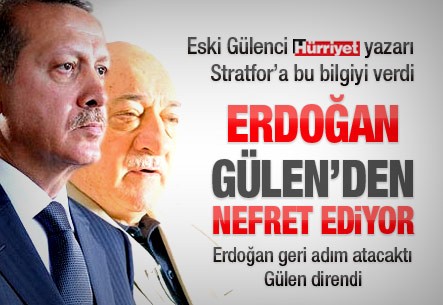


 del.icio.us
del.icio.us
 Digg
Digg
 Bilderberger Bush verkondigde al dat voor zijn part heel Oost-Europa bij de NAVO mag komen. (Behalve Rusland.) Om geopolitieke redenen willen zijn bazen heel Europa in handen hebben. Opdat de Russen geen Europese bondgenoten meer zouden hebben. Een ander voordeel daarbij is dat de NAVO op deze wijze extra kanonnenvlees krijgt. Op de NAVO-slagvelden creperen nu al o.a. Nederlandse soldaten. “Zijn bloed kome over ons !”, riepen de joodse priesters toen ze Christus aan het kruis wilden. (Gewoon een citaat uit de Bijbel. Indien viraal-fascist Jozef De Witte dit citaat niet goed vindt, dan moet hij maar een proces aanspannen tegen de schrijvers van de Bijbel). “Het bloed van de massa kome over ons”, roepen de internationale bankiers onder elkaar. Een duistere vloek. Nu zal er ook Albanees en Kroatisch bloed vloeien voor hun belangen. Het Herrenvolk der bankiers spuwt op wie niet bij de kliek hoort. De massa moet volgens bepaalde documenten, uitgelekt uit de Bilderberg-conferenties, voor twee derde vernietigd worden. “Het zijn onnuttige magen”, zo staat er letterlijk. (Zie boek “De geschiedenis van Bilderberg”, door Daniel Estulin.)
Bilderberger Bush verkondigde al dat voor zijn part heel Oost-Europa bij de NAVO mag komen. (Behalve Rusland.) Om geopolitieke redenen willen zijn bazen heel Europa in handen hebben. Opdat de Russen geen Europese bondgenoten meer zouden hebben. Een ander voordeel daarbij is dat de NAVO op deze wijze extra kanonnenvlees krijgt. Op de NAVO-slagvelden creperen nu al o.a. Nederlandse soldaten. “Zijn bloed kome over ons !”, riepen de joodse priesters toen ze Christus aan het kruis wilden. (Gewoon een citaat uit de Bijbel. Indien viraal-fascist Jozef De Witte dit citaat niet goed vindt, dan moet hij maar een proces aanspannen tegen de schrijvers van de Bijbel). “Het bloed van de massa kome over ons”, roepen de internationale bankiers onder elkaar. Een duistere vloek. Nu zal er ook Albanees en Kroatisch bloed vloeien voor hun belangen. Het Herrenvolk der bankiers spuwt op wie niet bij de kliek hoort. De massa moet volgens bepaalde documenten, uitgelekt uit de Bilderberg-conferenties, voor twee derde vernietigd worden. “Het zijn onnuttige magen”, zo staat er letterlijk. (Zie boek “De geschiedenis van Bilderberg”, door Daniel Estulin.)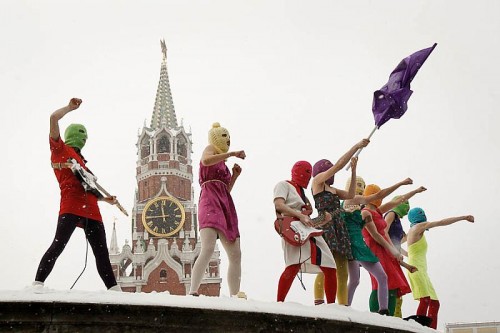

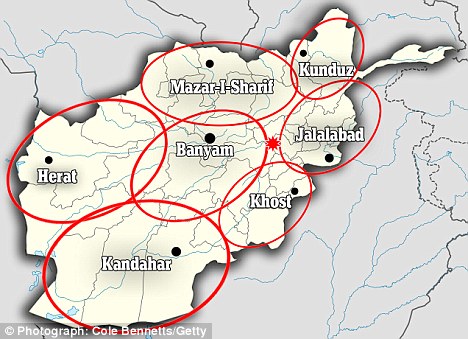


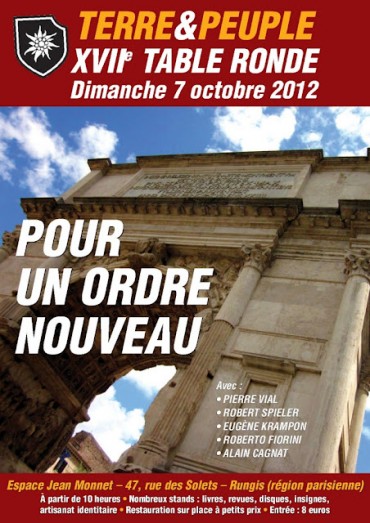

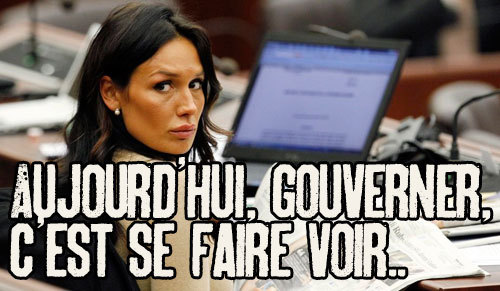

 Sie änderten das Aufstandsgesetz von 1807 und das Posse Comitatus Gesetz von 1878. Diese Gesetze untersagten den Einsatz von Bundes- und Nationalgardetruppen zur Durchsetzung von Gesetzen innerhalb des Landes, ausgenommen, dieser ist verfassungsmäßig erlaubt oder ausdrücklich vom Kongress während eines Aufstandes oder anderer nationaler Notstandssituationen genehmigt.
Sie änderten das Aufstandsgesetz von 1807 und das Posse Comitatus Gesetz von 1878. Diese Gesetze untersagten den Einsatz von Bundes- und Nationalgardetruppen zur Durchsetzung von Gesetzen innerhalb des Landes, ausgenommen, dieser ist verfassungsmäßig erlaubt oder ausdrücklich vom Kongress während eines Aufstandes oder anderer nationaler Notstandssituationen genehmigt.

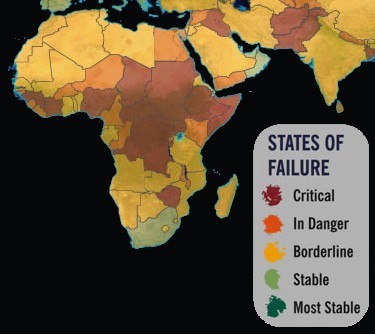 En réalité ledit géant faussement paranoïaque s’est démené comme un beau diable pour produire des semblants de menaces à peu près crédibles, surtout depuis la chute de « l’empire du mal » que ce pays avait toujours prétendu « contenir ». Dieu merci, après quelques tentatives sporadiques de cristalliser l’attention sur le narco-terrorisme, puis sur les armes de destruction massive de Saddam Hussein, le terrorisme islamique tomba littéralement du ciel pour offrir à cette défunte menace un digne successeur, découlant tout naturellement de l’hostilité du monde arabe aux libertés américaines et de son refus de laisser à Israël la possibilité de négocier la paix et de régler pacifiquement ses désaccords avec les Palestiniens.
En réalité ledit géant faussement paranoïaque s’est démené comme un beau diable pour produire des semblants de menaces à peu près crédibles, surtout depuis la chute de « l’empire du mal » que ce pays avait toujours prétendu « contenir ». Dieu merci, après quelques tentatives sporadiques de cristalliser l’attention sur le narco-terrorisme, puis sur les armes de destruction massive de Saddam Hussein, le terrorisme islamique tomba littéralement du ciel pour offrir à cette défunte menace un digne successeur, découlant tout naturellement de l’hostilité du monde arabe aux libertés américaines et de son refus de laisser à Israël la possibilité de négocier la paix et de régler pacifiquement ses désaccords avec les Palestiniens.


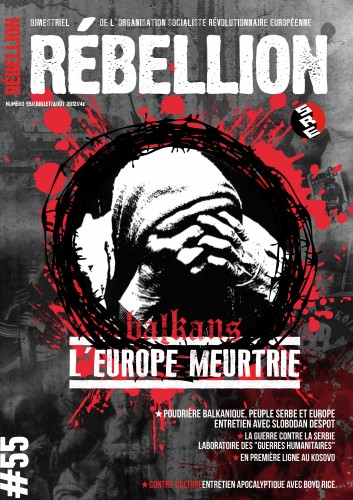
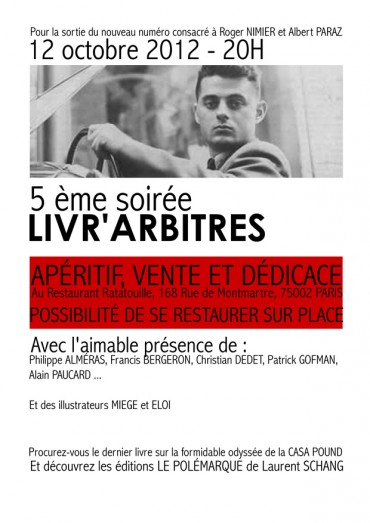
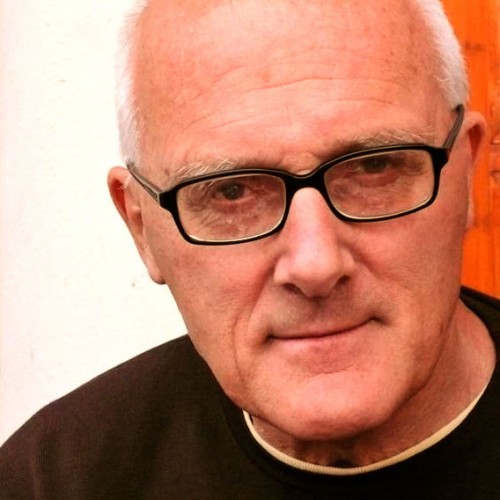


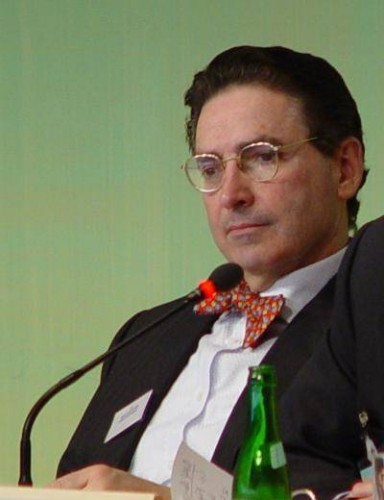 thk. Professor Dr. iur. et phil. Alfred de Zayas wurde am 23. März zum Unabhängigen Experten bei der Uno zur Förderung einer demokratischen und gleichberechtigten Weltordnung vom Menschenrechtsrat ernannt. Er ist der erste, der dieses neu geschaffene Mandat übernehmen durfte, um so im Bereich der Demokratisierung der Uno und der in ihr vereinten Nationalstaaten wirken zu können. Bereits in der Herbstsession des Uno-Menschenrechtsrates hat Alfred de Zayas seinen ersten Bericht vorgelegt und ist dabei auf grosse Zustimmung gestossen. Der Unabhängige Experte, der eine lange Karriere an der Uno aufweist, war, wie er selbst sagte, nicht ganz unerwartet zu diesem Amt gekommen, da er sich schon sehr lange mit der Frage der Ausgestaltung echter, das heisst direkter Demokratie, wie sie in der Schweiz existiert, beschäftigt hat. Mit seinem Mandat möchte sich Alfred de Zayas für den Frieden und die Gleichwertigkeit der Völker einsetzen. Zeit-Fragen hat Professor de Zayas an der Uno in Genf getroffen.
thk. Professor Dr. iur. et phil. Alfred de Zayas wurde am 23. März zum Unabhängigen Experten bei der Uno zur Förderung einer demokratischen und gleichberechtigten Weltordnung vom Menschenrechtsrat ernannt. Er ist der erste, der dieses neu geschaffene Mandat übernehmen durfte, um so im Bereich der Demokratisierung der Uno und der in ihr vereinten Nationalstaaten wirken zu können. Bereits in der Herbstsession des Uno-Menschenrechtsrates hat Alfred de Zayas seinen ersten Bericht vorgelegt und ist dabei auf grosse Zustimmung gestossen. Der Unabhängige Experte, der eine lange Karriere an der Uno aufweist, war, wie er selbst sagte, nicht ganz unerwartet zu diesem Amt gekommen, da er sich schon sehr lange mit der Frage der Ausgestaltung echter, das heisst direkter Demokratie, wie sie in der Schweiz existiert, beschäftigt hat. Mit seinem Mandat möchte sich Alfred de Zayas für den Frieden und die Gleichwertigkeit der Völker einsetzen. Zeit-Fragen hat Professor de Zayas an der Uno in Genf getroffen. 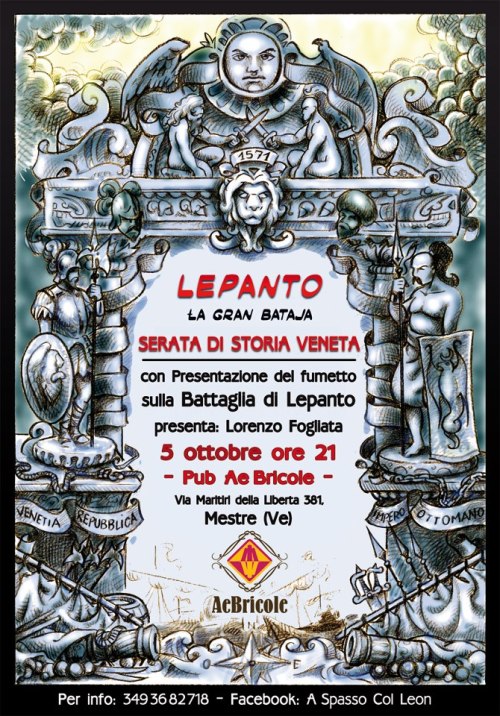

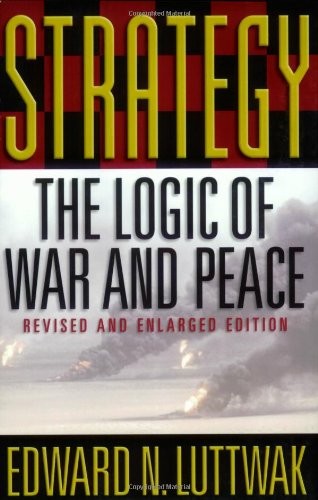 Luttwak: “Nous devons nous retirer du monde musulman, en n’y laissant qu’une présence stratégique minimale pour gérer nos intérêts”. Selon Edward Luttwak, analyste auprès du “Center for Strategic and International Studies”, la vague protestataire de ces dernières semaines sanctionne la fin d’une illusion: “Les néocons ont imaginé que la démocratie arriverait au Moyen Orient dès l’élimination de Saddam et le Président Obama s’est également fourvoyé en croyant que le dialogue la ferait avancer. Du moins, pour le moment, la démocratie n’intéresse pas le monde musulman. Nous devons abandonner nos rêves et nous concentrer, avec réalisme, sur nos intérêts”.
Luttwak: “Nous devons nous retirer du monde musulman, en n’y laissant qu’une présence stratégique minimale pour gérer nos intérêts”. Selon Edward Luttwak, analyste auprès du “Center for Strategic and International Studies”, la vague protestataire de ces dernières semaines sanctionne la fin d’une illusion: “Les néocons ont imaginé que la démocratie arriverait au Moyen Orient dès l’élimination de Saddam et le Président Obama s’est également fourvoyé en croyant que le dialogue la ferait avancer. Du moins, pour le moment, la démocratie n’intéresse pas le monde musulman. Nous devons abandonner nos rêves et nous concentrer, avec réalisme, sur nos intérêts”.




Publié le29/09/2012 - ex: http://mediabenews.wordpress.com/